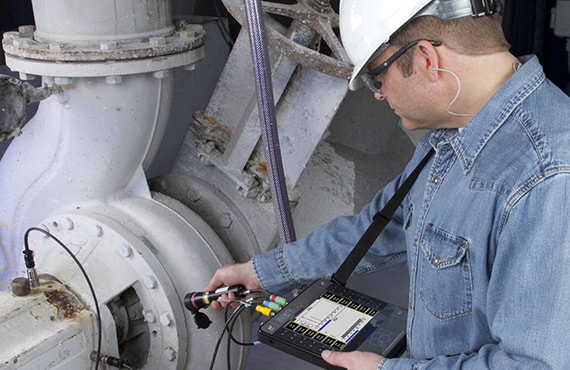EN 12952 – Water Tube Boiler Strength Test
The EN 12952 standard is a crucial benchmark in ensuring the structural integrity of water tube boilers, which are widely used in oil and gas operations for steam generation. This test evaluates the strength and durability of these boilers under specified pressure conditions to prevent potential failures that could lead to accidents or costly downtime.
Water tube boilers are essential components in power plants, refineries, and other industrial facilities within the oil and gas sector. They must withstand high pressures and temperatures, making it imperative for them to be tested rigorously before commissioning and periodically thereafter. The EN 12952 strength test is one of the most stringent tests conducted on these boilers.
The testing process involves subjecting the boiler’s water tubes to a specified hydrostatic pressure exceeding their nominal working pressure. This high-pressure environment simulates real-world operating conditions, providing insights into the potential weaknesses or vulnerabilities in the design and manufacturing quality. If any defects are detected during this test, corrective actions can be taken immediately, ensuring safe operation.
Compliance with EN 12952 is not only a regulatory requirement but also a best practice for maintaining high operational standards. Non-compliance could result in penalties, safety hazards, and reputational damage. Therefore, it is crucial to understand the nuances of this test method to ensure successful completion.
The test procedure outlined in EN 12952 involves several key steps: specimen preparation, initial inspection, application of hydrostatic pressure, monitoring for deformation or leakage, and finally, a post-test examination. Each step requires meticulous attention to detail to achieve accurate results.
Specimen preparation is critical as it sets the stage for reliable testing outcomes. This includes ensuring that the boiler has been thoroughly cleaned and inspected before being pressurized. Any pre-existing defects must be documented and addressed prior to the test.
The initial inspection involves visual checks, non-destructive testing (NDT), and other diagnostic tools to identify any visible or latent flaws. These inspections are crucial in determining the overall condition of the boiler and identifying areas that may require special attention during pressurization.
Once the specimen is prepared and inspected, it undergoes a hydrostatic pressure test. The pressure applied must exceed the nominal working pressure by at least 25%. This additional pressure ensures that any potential weaknesses are exposed early in the testing process. Monitoring for deformation or leakage throughout this phase is critical to detecting structural issues.
After the pressurization period, a post-test examination follows, during which visual inspections and NDT methods are employed again to assess the integrity of the boiler after exposure to high pressure. Any detected defects should be recorded and evaluated by qualified personnel.
The results of this test provide valuable information about the structural soundness of the water tube boilers. These insights help operators make informed decisions regarding maintenance schedules, potential repairs, or replacements. By adhering strictly to EN 12952 guidelines, facility managers can ensure that their equipment remains safe and efficient over its lifespan.
Understanding the intricacies of the EN 12952 strength test is essential for those involved in oil and gas operations. It underscores the importance of rigorous testing procedures in maintaining high standards of safety and reliability. This knowledge enables effective decision-making and strategic planning, ultimately leading to better outcomes across various aspects of industrial operations.
In summary, the EN 12952 strength test plays a pivotal role in ensuring the safe operation of water tube boilers within oil and gas facilities. By following this standard meticulously, operators can mitigate risks associated with potential failures, uphold regulatory compliance, and enhance overall performance metrics.
Why It Matters
The EN 12952 strength test is vital for several reasons:
Safety: Ensures that boilers meet strict safety standards to prevent accidents due to structural failure.
Regulatory Compliance: Adheres to international regulations and standards, avoiding potential legal issues.
Operational Efficiency: Detects defects early, preventing costly downtime and repairs.
Environmental Protection: Reduces the risk of hazardous materials leaking into the environment.
A robust strength test like EN 12952 helps maintain operational efficiency by identifying and rectifying any issues before they escalate into major problems. This proactive approach not only enhances safety but also contributes positively to environmental sustainability efforts within oil and gas operations.
Industry Applications
The EN 12952 strength test is particularly relevant in various sectors including power generation, petrochemical processing, and other industries where high-pressure boilers are used. In the oil and gas sector, these boilers play a crucial role in generating steam for various processes such as heating, distillation, and power production.
The following list highlights some key applications:
Steam generation: Provides reliable steam supply for various industrial needs.
Petrochemical processing: Supports the refining of crude oil into usable products.
Heating and distillation processes: Ensures consistent temperature control and efficient separation.
Power generation: Facilitates continuous electricity supply to meet operational demands.
In all these applications, the reliability of water tube boilers is paramount. The EN 12952 strength test ensures that these critical components are up to the task, thereby supporting smooth and efficient operations across multiple industries.
Competitive Advantage and Market Impact
Compliance with rigorous testing standards like EN 12952 can provide significant competitive advantages for companies operating in the oil and gas sector. By ensuring that their equipment meets stringent safety and quality benchmarks, firms demonstrate a commitment to excellence, which is increasingly valued by clients and stakeholders alike.
In terms of market impact, adhering to such standards helps establish credibility and trustworthiness among customers. This can lead to improved business relationships and enhanced reputation within the industry. Moreover, compliance with international standards like EN 12952 often opens doors to new markets and opportunities, as it signals a company’s ability to meet global standards.
From an operational perspective, the proactive nature of these tests contributes to reduced downtime and lower maintenance costs over time. This efficiency translates directly into cost savings for businesses operating in competitive environments. Ultimately, embracing robust testing practices not only bolsters a firm's position but also fosters long-term growth and success within the oil and gas sector.





